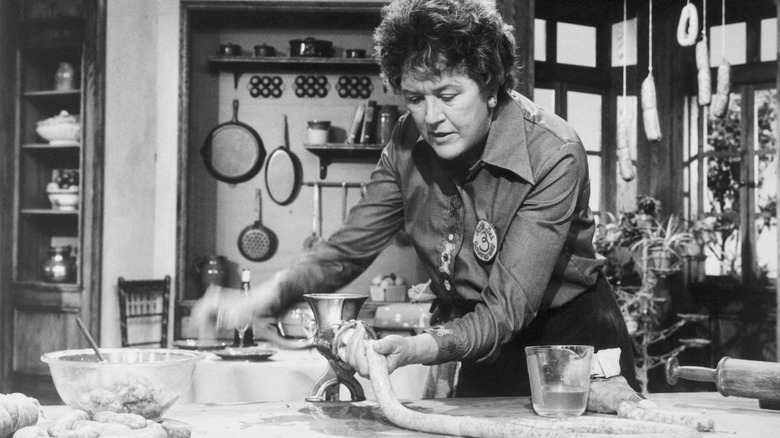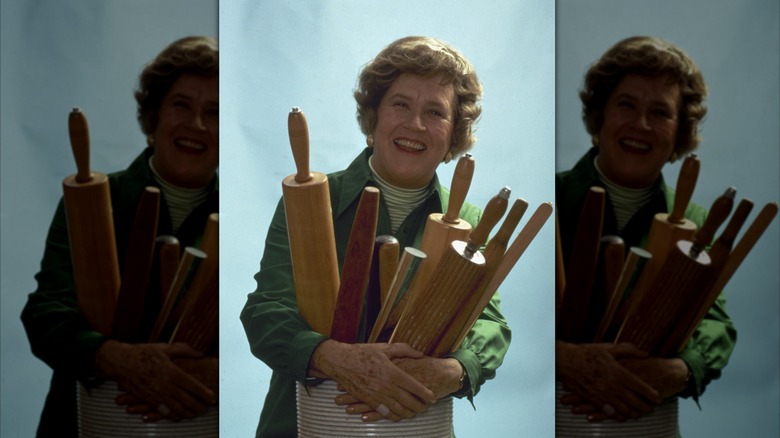Why Julia Child Refused To Use The Word 'Gourmet'
We may receive a commission on purchases made from links.
We can all agree that sheep's milk Roquefort has more "gourmet" to it than a slice of plastic-wrapped American cheese. But whether you happen to like American cheese more isn't the subject here. The fact is that Roquefort fits the gourmet bill better on flavor, texture, and intrinsic impressiveness — the third quality of which is hardest to define. Julia Child was acutely aware of this. By definition, "The French Chef" herself was certainly a textbook gourmet, but she wasn't a fan of the word. "French cooking is just a wonderful way to treat food," Child once explained (via Time). "All it really is, is just good cooking."
The authority at Merriam-Webster defines "gourmet" as "of, relating to, or being high quality, expensive, or specialty food typically requiring elaborate and expert preparation." A gourmet meal can be cooked in a gourmet kitchen by a gourmet chef. Although, while a fresh peach picked from a backyard tree is easily the highest-quality fruit a person could eat, it feels less gourmet than black truffle salt or restaurant-brand chili crisp that costs $4 a spoonful.
For all its best food-worship intentions, the word "gourmet" is shrouded in an inherent air of elitism. Gourmet implies affluence and the unspoken value judgment that "x is better than y." Without a less-desirable control group to which to compare it, a "gourmet" offering cannot exist — and in this way, the word signals that a cold-pressed olive oil lover is somehow smarter and worldlier than the takeout pizza on which they drizzle it.
Good food is good food, hold the elitism, said Child
According to Child, French cooking as a culinary discipline isn't superior due to any specific "gourmet" flavors or ingredients. If French cooking is revered, it's because it focuses on logical, well-executed assembly guided by a framework of straightforward principles. As she once shared in an interview with The Splendid Table, pedagogy (and subsequent non-gatekeeping) was central to her approach: "I'm very anxious for people to know how to do things and exactly how to do them."
The Cordon Bleu graduate and Le Cercle des Gourmettes member spent her entire career making good food more accessible to the Everyman home cook. In her own kitchen, she loved pairing martinis with Goldfish crackers and mashing thirty whole cloves of garlic into her potatoes – and she wasn't shy or sorry about these preferences. Good food, Child knew and taught, is good food.
"You don't have to cook fancy or complicated masterpieces," quoth Child, per WGBH, "just good food from fresh ingredients." If anything, Child's interpretation of the word gourmet best aligns with "gourmet" as applied to a professional kitchen. Here, the descriptor has to do with preparedness; gourmet kitchens are stocked with the necessary tools for creating a specific type of dish. In fact, to speak about this quality-centric concept as Child interpreted it, "art" might be a better word choice. After all, the chef titled her bestselling magnum opus "Mastering the Art of French Cooking," not "Mastering Gourmet French Cooking."

